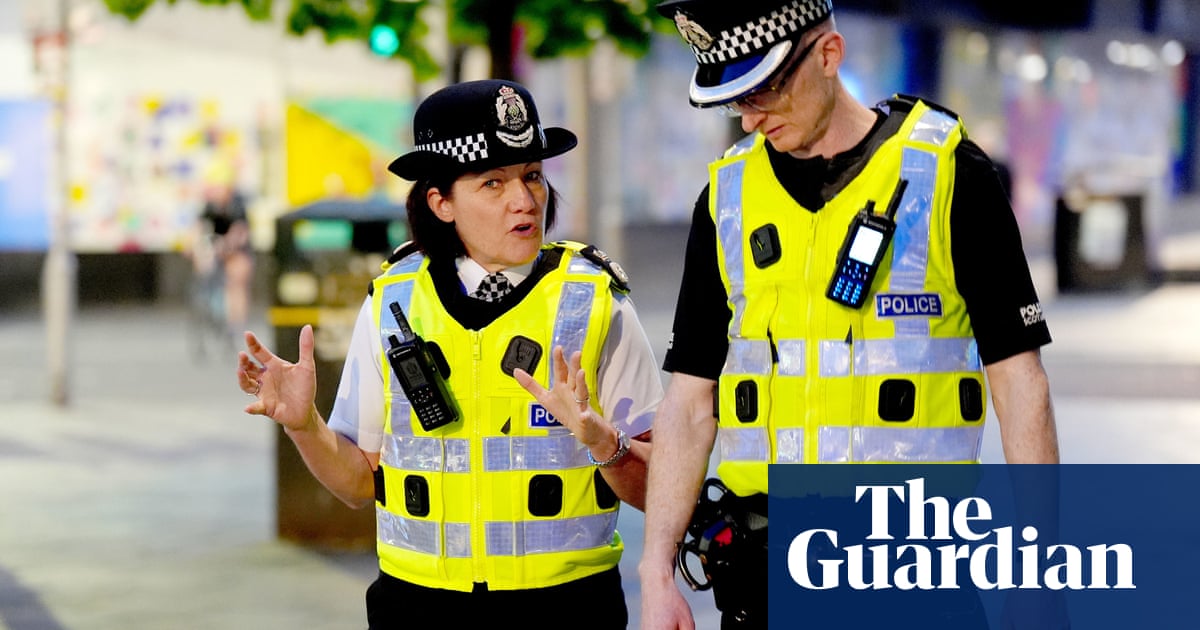[ad_1]
Police Scotland is “overwhelmed” by the “horrendous” demands on staff from failing mental health services and a justice system that requires complete reform, according to its chief constable Joe Farrell.
The first woman in charge Police Scotland, the UK’s second largest power, Farrell took command of the national service last October.
She inherited an organization under pressure: declining numbers, a stressed and demoralized workforce, underreporting of misogyny and racism in the ranks, and public discontent over police station closures. Since then she has faced specific challenges such as the ongoing investigation into the finances of the Scottish National Party, Operation Branchformand more recently the implementation of the Scottish Government’s controversial decision Hate Crimes Act.
Farrell has now hit back, challenging other agencies to “step up” and allow officers to focus on core policing.
“If someone is a threat to themselves or a danger to other people, that’s absolutely where the police need to be,” Farrell said. “But we’re looking at children of people who are not criminals, they don’t meet the threshold to be put under the mental section Hello Act, but we feel the need to wrap ourselves around them because there is no one else.
“When people say, ‘Why don’t you do this better or more than that and why don’t we have a public servant here?’ that’s part of the reason.”
A number of English forces, including the Met, have deliberately shied away from attending mental health screenings.
Farrell says she has met with chief executives of local authorities in Scotland to push for it, and continues to highlight court appearances as another major drain on police time.
According to Farrell, only 15% of those present actually testify that day, and the rest are called back into court at a later date. She estimates that Police Scotland spent £3m in overtime last year on court appearances, while a third of officers go to court on a day off or annual leave, affecting their work-life balance.
The problem is “system-wide,” Farrell said. “We have over 8,000 prisoners [close to full capacity], we have a disproportionate number of people in custody. This means that it is a system that is not working efficiently or effectively.
NEW Enforcement of the Hate Crime Act saw police inundated with more than 7,000 online complaints in the first week of April, only 3.8% of which were found to be legitimate, just as figures showed the number of police officers had fallen to the lowest its lowest level since 2008.
But Farrell insisted it had not damaged public trust as critics had predicted.
“I’ve been very impressed with the way officers and staff have dealt with the high level of demand in these early weeks,” she said, adding that – with 124 online reports last week – “we’re probably in the new normal”.
“What we’ve seen is an increase in the number of crimes against some of these new protected characteristics” — this is particularly true of hate crimes against disabilities — “which was the intent of the legislation.”
When he retired last summer, Farrell’s predecessor, Sir Ian Livingstone protect Branchform query length and rejected allegations of political motivation.
With the investigation continuing, all Farrell would do was reiterate the operational independence of her force and add: “We will make our report to the Crown in relation to the person who has been charged and we will do so on matter of weeks.”
This is not the first time Farrell has overseen an investigation into prominent political figures. In her previous role as Durham’s chief constable, she led the Beergate inquiry into Labor leader Keir Starmer and also drew criticism for not questioning Dominic Cummings about breaking lockdown rules.
She didn’t want to be drawn on what lessons from Durham she might apply to Branchform, but said: “More broadly than that, I’ve been in policing for over three decades. Inevitably there are many opinions around this, but we are objective and follow the evidence.’
Pharrell spoke to the media on Friday as it emerged that a former Police Scotland officer, Gemma McRae, who was sexually assaulted by a colleague and complained of harassment and misogyny at a train station in Moray, had accepted a payout from the force of £431,968.
MacRae made his initial complaint in 2018, but how much has changed? Farrell said she was “optimistic” that people were now more confident about reporting misconduct by colleagues, but said there was “certainly work to be done”.
Farrell also suggested her attempts to focus resources on areas of rising crime such as cyber fraud and online child abuse had been “armed by some” following criticism of the “proportionate response” model, which means police do not investigate every minor crime.
“Whether it was deliberately misunderstood or not – these are people like you and me who want a crime number because they were stupid enough to leave their phone on a table in a pub. When people are vulnerable, where they’ve been a repeat victim of crime, or they’re just saying, “I really need to see someone,” we’re going to respond.
[ad_2]
